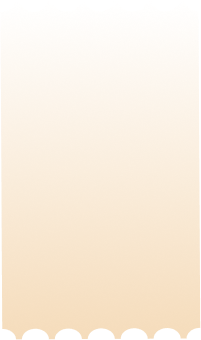Diplomacy is explained as a tool in the negotiation that is used in international governance for managing common affairs. Diverse conflicting interest are resolved by diplomats and it aids in managing peace and harmony in nation. Diplomats are individual who are appointed by government with objective to conduct diplomacy with other countries. Present assignment describes about significance of technical, career and political diplomats in conducting Bilateral and Multilateral diplomacy. Along with this, it easily assists in analyzing the current situation of diplomacy within the Libya. In addition to this role of foreign ministry, role of parliament and role of different actors of diplomacy has been mentioned.
According to Kitchen and Kelley, (2016) diplomats play a crucial role in representing their nation at international platform. They work for making strategic agreements with other diplomats that represent their nation. A person appointed by state to represent their respective country nation is known as diplomat. They represent their country in administrative and political platform and they conduct their nation's relations with other countries.
Official posting is given to diplomats and they are expected for doing negotiation to resolve diverse range of conflict interest. Seligmann, (2015) has mentioned that negotiating skills of diplomats should be good so that they can perform their assigned duty and accountability in effectual way. Promotion of information and data related to trade and commerce is done by diplomats and they play a significant role in signing treaties and conventions. It is crucial that negotiating skills of diplomats should be effective so that better and effective judgments can be taken for enterprise.
You Share Your Assignment Ideas
We write it for you!
Most Affordable Assignment Service
Any Subject, Any Format, Any Deadline
Order Now View Samples
Current situation in Libya
With the deposing of Dictator that is Moammar Gadhafi after five year it mainly results in worsening the security within the region, engaging in economic crisis as well as political deadlock. US Embassy in Tripoli was leading to build relationship with the Libya through which they can engage in increasing the employment opportunities. In the year 2006 USA exchange the diplomat that state the upgrade of US in the region. In order to seek the violent conflicts within the country that is Libya United State Institute of Peace (USIP) engage in the activities that support the country in stabilizing their position during all these transition. The different work of USIP within Libya include alliance of Libyan facilitator through this they may offer training to the professionals as well as leaders, lawyers so that they may easily maintain and resolve the conflicts situation. Another work of USIP include policy planning that enable US and international engagement within the Libya so that they may engage in the actions that promote justice, peace as well as security within the Libya.
Atkins, (2013) has mentioned that Major mission of diplomats is to stand for the interest and policies of their representing nation. Changes in political events and other conditions in nation affect the working of diplomats. Terms of treaty and conventions are decided by diplomats and they play an important role in managing international relations. Diplomats within the Libya are also accountable for making contacts and interaction with officials and other diplomats that are representing their parent nations. Policies, regulations, cultures and norms of state are presented by diplomats and economic and political interest of parent country are represented at international platform. Growth and development of host country that is US are ensured by hard and appropriate work done by diplomats. They work as participating agents that play a crucial role in negotiating to identify peaceful resolution of conflicts.
Under negotiation process bilateral and multilateral are two methods that are used for doing negotiations. Diplomats generally work in an embassy and they are skilled for managing the conflict and difficult situations in other countries. Rothman, (2015) has mentioned that diplomacy is an art for doing negotiation with other representatives and diplomats. International relations are managed and trade and commerce related activities are supported by them. Snow, (2016)Â has defined that globalization has opened way for organizations to sell their products and services in international market area. Large number of business enterprises are taking advantage of this opportunity for enhancing their financial revenues and profitability. Therefore, Libya would get positively impact by these activities as it benefit the economy in their own sense. Diplomats play a crucial role in enhancing trade and commerce related activities and economic growth of host country is supported by them.
International and domestic policies of nation play a significant role in managing international relations of organization. Globalization has paved way for developing an international system where movement of people, commodities and finance is made possible among diverse country nations. Diplomacy within the Libya is explained as procedure that is conducted for managing official and administrative relations between the government of independent nations. However, Susskind and Ali, (2014) has mentioned that diplomats are bounded by territorial boundaries. It is vital that modifications should be made and innovative methods should be adopted for integrating traditional diplomacy with modern diplomacy. Major functions which are performed by the Libya diplomacy includes representation of interest, conducting negotiation process and making communication with other diplomats. Holmes, (2015) has mentioned that complex economical and political environment has enhanced responsibilities on diplomats within the Libya region as it support in protecting the interest and region from the conflicting situation.
There are various challenges that are faced in diplomacy and it includes needs for making changes in existing policies, norms and rules so that better negotiating process can be made possible so that Libya can easily sustain in the marketplace. Globalization has made it essential that diplomats should work appropriately and legally for representing interest of their host country. Government of nations needs to develop strong and positive international relations for ensuring growth, development and success of countries. Bilateral and multilateral approaches are used under diplomacy. Bilateral approach gives focus on doing distribution of powers and a certain pattern of principles is followed under multilateral diplomacy. Majority of nations are nowadays giving more focus on adopting multilateral diplomacy. Within the Libya bilateral diplomacy has been used for maintaining the stability within the region by the EU. with the EU diplomat it results in effective trading that is exporting from EU to Libya and importing into EU from Libya.
However, Pamment, (2014)Â has criticized that bilateral diplomacy is more rewarding as compared to multilateral diplomacy. It is considered that bilateral diplomacy within the Libya region is less time consuming as compared to multilateral diplomacy and benefits associated with bilateral diplomacy are more high. On the other hand Woolcock and Bayne, (2013) has mentioned that bilateral diplomacy render limited scope and due to that imbalance of power occur between participating states. It is easier for making bilateral negotiations and it is a less time consuming process.
Multilateral diplomacy process takes place among more than two states and it requires a systematic approach for conducting multilateral diplomacy. More complex environment is observed under multilateral diplomacy and it is needed that Libya government of one state should deal with government of multiple nations. However, both the approaches are used for accomplishing a specific objective that are associated with national interest. Negotiations and arguments takes place in bilateral and multilateral diplomacy and a organized approach is used for concluding a final decision. Ministers of foreign affairs, government of nation and parliament exercise their rights in diplomacy. Government appoint diplomats as ambassadors for representing the nation and right are assigned by state.
 Bjola and Holmes, (2015) has described that parliamentary diplomacy is linked with parliamentary control. It is also mentioned as significant activities undertaken by the Libyan government for developing strong relation with other nations. It supports in providing assistance to each other for enhancing democratic legitimacy. Two or more than two parliaments of diverse nations involve in the procedure of discussing key issues faced by them. Role played by parliament in developing state relations with other countries' comes under this category. Bilateral and multilateral approaches supports for determining terms of negotiations. Deighton, (2015) has described that Changing global scenario has made it essential that skills, competence and capabilities of diplomats should be enhanced and modified to meet with the challenges that occurs due to economic, social and financial impact of global business environment. Parliamentary diplomacy within the Libyan state also provides a medium for resolving the differences and conflict issues among diverse nations. Parliament adopts some ways to get engage in diplomacy and one significant way is by influencing foreign policy. In addition to this parliaments are empowered to work as a representative bodies that represent regional and international organizations. It is assertive that diplomats within the North African region should posses technical, career and political diplomats. Career diplomats play a crucial role in ministry of foreign affairs and they helps in rendering better educational facilities for people. They assist in framing foreign affair policies and diverse foreign service legislation are also formed by them. Career diplomats works in foreign service of enterprise and it is vital that for becoming a career diplomat foreign service examinations should be passed. Career diplomat needs to be aware about business practices, country's economy and other financial and banking systems that are followed in the nation.
Kiehl, (2016) has described that Government is an actor who takes part in diplomacy procedure and some other actors are state, international organization and other international actors that assists the Libyan region to avoid the situation of conflict and disputes that arises in the economy. Policies are formed by government and foreign ministry and all the rules, regulations and norms formed by government are implemented by public servants and diplomats. Foreign policy formed by state are executed and implemented by positive efforts of political diplomats.
It is assertive that government should be aware about economical, social and other financial aspects of nations as well as technical diplomats within the Libyan government provides assistance to government on various technical related issues. If government will be starting a new activity to purchase new machinery for enterprise than technical diplomats can provide better guidance and instructions to them. If a new project is started for improving technical advancements in nation than technical diplomats will also provide assistance to government and give suggestions for executing the project in effective way. Parliamentary democracy within the Libya renders efficient and effective mediums for managing good administration within the nation in terms of managing the political stability within the region. Transparency and equality is managed in the nation and it conflicts and other matters can be resolved among different nations. Multilateral diplomacy supports for managing the functions in effective way.
Complications that might stem from the division of the country into two representative governments in the east and west (tripoli and benghazi)
World is getting highly interdependent and traditional foreign policies are failing in meeting the challenges and threats that are created by 21 st century diplomacy. Earlier major aim of foreign policies was to promote, pursuit and defense the national interest. It has been described by Bjola and Holmes, (2015) Market place for Libya diplomacy has become highly congested and mutually reinforcing explosion has occurred in total number of actors that are part of diplomacy. Moreover, increase in travel and tourism activities by diplomats and career diplomats are playing a significant role in providing better education programs to people. Along with this, Rashid (2013) has also stated some other complication that might stem from the division of Libya government in Tripoli and Benghazi include assessing the social impact that is the internal division among the government affected Libyans families. With the division of country in east or west families found themselves torn. Along with this the division of government also impact on the social relations among the neighbours.
It also has provided medium for people to move in foreign countries in search of relaxation, leisure and recreation. It has increased pressure on the Libya diplomats for rendering better services to people. Some other issues which are faced by diplomats consist of nuclear proliferation and global warming. Some new actors in diplomacy have occurred and many intergovernmental and governmental organizations have increased like United nations, Amnesty international, Greenpeace and IPCC (Eriksson, 2016). Areas which are related to diplomacy also has enhanced and some new elements which have been included are science to technology.
According to Pamment, (2014) Education, law and arts. Diplomats are now supposed for using various effective methods for doing negotiations, representing their nation on international platform and making public relations. With the help of this diplomats may easily sustain and accept the Libyan government to ensure managing the conflicting volatile environment of the region. In addition to that they are also responsible for cultural exchange programs and reporting to respective government of their host country nations. In addition to that functions of diplomacy also have expanded and more people are needed for supporting ministry of foreign affairs. It has also become assertive that high skills should be learned by diplomats so that they can perform their assigned functions in effective way. Moreover, it has become necessary that diplomats should become more versatile and acquire new competence so that they should represent their country on international platform effectively. In the present context Libyan government also needs to be more supportive and various departments of government also needs to be effective so that better international relations can be developed with foreign country nationals.
Did diplomacy failed or succeed in Libya
with the constant changing nature within the Libya the government has accepted the plan that is framed by an African Union mediation in order to attain the intellectual accountability. However the plan cannot be implemented successfully within the region as the opposition leaders were insisting the Gaddafi regime to overcome the situation of their power. Along with this it has been also stated that government as well as opposition both have not been seen in the pressure position or level for attaining the level of peace. Along with this, there is alternative diplomatic that may be used by the Libyan government through which they can manage the international relation among the different region through negotiation (Triponel and Williams, 2014). Along with this, Uganda president has also critique the engagement of western powers within the violent environment in Libya that is initiating among the Tripoli and rebel movement.
Who makes foreign policy
In order to improve the relationship between the two nations so as to facilitate trade and other operations foreign policies are formulated. Williams, (2004) states that, However these policies and practices are decided and formulated at the domestic level but it is assumed to made by the political regimes. These includes the globalizing challenges in form of technologies and communication, considering opinions of public, transnational forces and integrative tendencies. With the passage of time, the process of foreign policy in Libya has significantly changed. Since there were two government being found in the country such as Tripoli and Benghazi which are representatives of eastern and western parts of the concerned nation. therefore, the intervention of both the political regime has been significantly found in foreign policy formulation which in turn further influences the development and protection of the respective nation (Crystal, 2015). Furthermore, it has been ascertained that officially outsiders expertise and ministers are deemed to formulate these policies after successful evaluating the past decisions and institutional position as well as assessing the informed decision on the following subject. These formulated policies is further interpreted by the official agents and thereafter implemented in regards to desired outcomes. In addition to the above, Wang, (2006) states that these policies sometimes needs to be sold to different audiences either in abroad or in the domestic nation. The process of formulating, interpreting, implementing and presenting is the intrinsic part of making foreign policy. Sometimes it becomes difficult to judge wherein the process has started from and ended to. However, the number of persons engaged in formulating the policies of Libya includes the official agents, both the east and west governance, professionals, external agencies may vary on the type of issue that needs to be resolved.
According to the Wang and et.al., (2012), the varied kinds of personnel involved in the following process comprises of government officials and varied expertise that has remained the part of foreign regime along with the members of non governmental organizations. Some of the most imperious people that are present at the time of formulating foreign policy includes, President, cabinets, ministers, juntas, Prime ministers, inter agency groups, parliaments, coalitions and politburos. The impact of these policies on the country would be quite crucial in removing the indifference's between both the region that aroused due to the formation of political regime.
Role of Parliament in Diplomacy
Parliamentary diplomacy can be defined as an association which is engaged in improvising the relationship with the foreign nations through the means of mutual understanding. Several beneficiary activities is undertaken by the parliament corporation. In the view point of the Williams, (2004), it helps in addressing the foreign issues the parliament is involved in analyzing the current political, legal, economical, cultural and social aspects of the country. In regards to the opinion of Noulas, (2011), in the current era, the international relationships is governed and monitored by superfluity non state and state players. The leading role of parliamentary diplomacy can be analyzed in the two broad concept which occurs at institutional and diplomatic level. The foremost comprises of the three agendas or processes. Herein, the legislative is engaged in making collective decisions and confirmation of international treaties. It encompasses of decisions regarding security and sovereignty of the state. Furthermore, meetings are conducted so as to ascertain the budgets to be allocated for varied activities.
Currently, the political situation of Libya has been very devastating due to the formation of two governmental parties. This in turn is further affecting its economies of scale due to crime prevailing in the nation. Moreover, citizens of the respective nations needs to make long hauls in order to cross shores and domestic boundaries. However, the main role of parliament in devising the foreign policy of respective nation includes improving the political relations of the country. For this purpose, Leon has been making significant efforts over the past years to reconcile the two regimes that is Benghazi and Tripoli (St John, 2004). Therefore, it can be stated that parliament play a decisive role so as to ensure safety in nation and reconcile the operations.
As per the Emerson and et.al., (2011) states, that the role of parliament in multilateral diplomacy is through the means of delegating the responsibility at lower levels so as to get over the regional issues along with the accomplishment of the bilateral constraints that has been discussed above. The major topic on which the parliament places a light includes human rights, organized crimes, etc. It has been assessed that the role of executives of Ministry of Foreign affairs in Zimbabwe is to ensure that implementation and coordination of foreign policy.
Role of government in Diplomacy
In order to induce any new policies for the betterment of the nation and its citizens Libyan government has played a decisive role in the following area. Within the help of this they are able to manage their conflicting environment. Its main function is to put forwards the issues that the government is currently facing in the agenda meetings. According to the view point of Woolcock, (2013), solutions regarding the same shall be proposed there an then so as to make a clear description and overview of the respective topic and undertake necessary actions to minimise the same. Apart from proposing problems and solutions in the agenda meeting, the role of both the government that is Tripoli and Benghazi is wide and it needs to implement the new designed policies and practices for the up-liftment of the Libya economy. For this purpose, it needs to gain the loyalty and trust of the public so as to convince them. The designed strategies by the diplomats of Libyan it and can only be implemented in a proper manner if the people of the respective nations agree to the same (Wang and et.al., 2012). Therefore, through the means of effective campaigns, speeches and other activities the citizens can be convinced. Therefore, Wang, (2006) denotes that maintaining public relation is the most prominent imperative function or role of government in implementing foreign policy.
Rights of ministers of F.A :- According to Atkins, (2013)Â Ministers in foreign affairs are provided many rights and they are accountable for making foreign policy for the nation. Ministers of foreign affairs play a significant role in managing international relations of nation. They play a crucial role in managing relations with other international organizations. They represent the interest of republic of nation and promotes interest of country in foreign country nations. Cooperation is provided by ministry of foreign affairs to people that are living outside the nation. Nation's political and diplomatic missions are supervised and organize by ministry of foreign affairs. In addition to that responsibility and competence of ministry of foreign affairs are also decided and they deal with matters in fields of international cooperation and development of human resources of nation.
Ministry of foreign ministers also works for public and cultural diplomacy and new policies are formed by them for promoting interest of nation in countries situated abroad. Foreign ministers are also responsible for diplomatic duties and they are in-charge of state's foreign policy and managing other relations. Moreover, rights are assigned to ministry of foreign affairs for making foreign policy and marginal role is played by them in determining foreign policies of nation. Foreign ministry is also accountable for ensuring protection rights of their host country nationals.
Parliamentary Diplomacy and Cultural Constraints :- Parliamentary diplomacy supports for influencing government policies and other regulations that are formed by government. Consultation between different Libyan governments and various committees is also made and effective steps are taken for forming foreign policy in the enterprise. Monitoring of Libya government activities is also done for managing international affairs of nation and mandatory ratification are made in the treaties and conventions that are made by parliament. In addition to this regular meetings are organized among committees of foreign affairs and other ministries that are working in the nation.
Committee hearing meetings are also organized with government representatives and at the time of need special committees are also established for monitoring the work that is performed by a particular organization. It has been mentioned by Rothman, (2015) Parliamentary work groups are also formed that assist the organization on international matters. Parliamentary activities also overlooks the implementation of policies that are formed by government and officers employed by government acts as liaisons with the member of parliament. Dissemination of information is also done and parliamentary information sharing sessions are also organized. Information service department of parliament renders professional services to different members and committees. On the other hand Libyan citizen's involvement is also taken in decision making process of parliament and road shows and regional workshops are also organized for enhancing involvement of people and involving them in the policy formulation process.
Futures of diplomacy :- Future for diplomacy is versatile and it is vital that diplomatic practices should be practiced appropriately. Numbers of actors ion diplomacy are enhancing at faster pace and globalization also has improved scope for diplomacy. In addition to that it is also providing medium for supporting developing better international relations with foreign country nations. However, the above proposed action of Leon, the president of Libya to reconcile two governmental regimes so as to get a better and prospering nation. For this purpose, the respective person intents to take one member from the Benghazi region as a representative of new government. The purposeful action will help in minimizing the wars and UN-united region into a united one. The economies of scale will grow, if the foreign policy of concerned nation is devised in appropriate manner (Jentleson and Whytock, 2006). Furthermore, it creates possibility to minimize political instability from the nation thereby leading to a highly developed countries of the world. Reconciliation of both the government may reduce the amount of terrorist attacks and wars currently prevailing in country.  More expertise and methods have been provided by Diplomats and it is supporting in resolving the conflicts and issues in nation. More better of doing negotiation and resolving conflicts have been identified and it has supported for managing peace and harmony in the enterprise.
Get assignment help Australia from professional experts to score higher grades.
Conclusion
Summing up the present assignment it can be concluded that Technical, career and political diplomats play a significant role in managing International affairs of the Libya region. It has been also assessed the current situation of Libya and the effective ways that are rendered under diplomacy for resolving conflicting interests and negotiating terms and conditions of commerce. However, globalization has created challenges for modern diplomacy and it has become essential for diplomats to adopt versatile skills so that they can perform their tasks and assigned responsibilities in an effective way. Actors in diplomacy are also increasing and many governments and non-government organizations are also becoming part of modern diplomacy. Strong and positive international relations have been developed.
 References
- Atkins, M., 2013. Informal Empire in crisis: British diplomacy and the Chinese customs succession, 1927-1929.
- Bartram, L. and Sullivan, J., 2015. Education Diplomacy in Action: Touching Lives: Education Diplomacy in Service to Others. Childhood Education. 91(2). pp.156-159.
- Bhola, C. and Holmes, M., 2015. Digital Diplomacy: Theory and Practice. Routledge.
- Crystal, S. H., 2015. Coercive Diplomacy A Theoretical and Practical Evaluation. Glendon Journal of International Studies/Revue d'études internationales de Glendon. 8(1-2).
- Deighton, A., 2015. Diplomacy at the Brink: Eisenhower, Churchill and Eden in the Cold War by David M. Watry (review). Journal of Cold War Studies. 17(4). pp.212-214.
You may also like to read:Â Evaluation of growth opportunities for the organization
Amazing Discount
UPTO55% OFF
Subscribe now for More
Exciting Offers + Freebies










